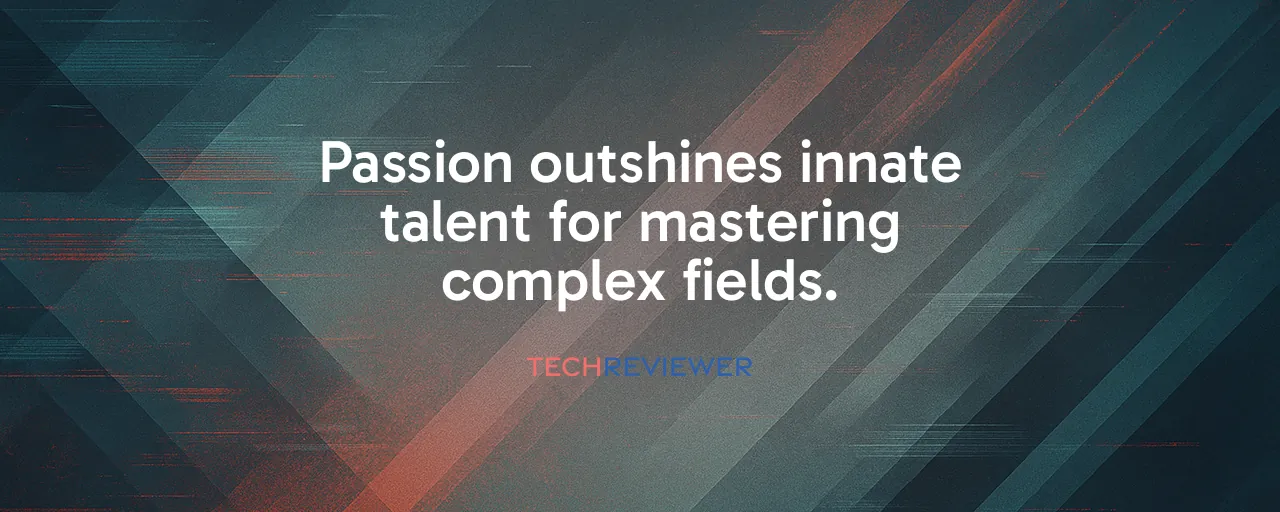Chasing What Sparks You
Ever met someone who seems to breeze through coding challenges while you're wrestling with every line? It's tempting to think natural talent is the key to success in tech, especially in brutal fields like systems programming. But here's a twist: passion might matter more. A software engineer, still in college, spent three years grappling with assembly language and C, feeling like the concepts were light-years beyond reach. Despite the struggle, a deep curiosity about operating systems kept them going. Today, they're eyeing a career in that very field, proving that raw interest can sometimes outshine innate ability.
This isn't a one-off story. Research backs it up: intrinsic motivation, the kind that comes from genuine excitement, often predicts long-term success more reliably than early aptitude. When you're hooked on a subject, you're more likely to stick with it through the grind. That's critical in tech, where skills evolve fast, and mastery demands years of effort. So, what happens when you chase what lights you up instead of sticking to what comes easy?
The Power of Grinding Through
Deliberate practice, the kind that's focused and feedback-driven, is the backbone of expertise. Studies show it takes thousands of hours to master complex domains like systems programming, where you're juggling memory management and concurrency. One programmer's journey illustrates this perfectly. They found operating systems concepts excruciatingly tough, lagging behind peers who seemed to get it instantly. Yet, their fascination with low-level code pushed them to keep at it. After years of persistence, they built skills strong enough to compete professionally, even if they never matched their peers' natural flair.
Compare that to a student tackling calculus. Initially, the subject felt like a brick wall, with equations that refused to click. But a love for problem-solving kept them engaged. Over time, they not only caught up but developed a deeper grasp of theoretical computer science than some peers who found math easier early on. The lesson? Struggling through a subject you love can carve out a richer understanding, as your brain rewires itself through sheer repetition and focus.
Why Your Brain Backs Passion
Science offers clues about why passion works such magic. Neuroplasticity research shows your brain physically reshapes itself when you practice something relentlessly. Repeated effort strengthens neural pathways, building specialized circuits for skills like coding or debugging. Neuroplasticity research has shown that adults who persist in learning new skills, including challenging ones like systems programming, can experience increased gray matter density in brain regions associated with those skills. That means struggle isn't just a hurdle; it's a catalyst for deeper learning.
There's more. Flow state research highlights that learning happens best when a challenge slightly stretches your current skills. If you're passionate about a subject, you're more likely to hit that sweet spot, staying engaged without burning out. Contrast this with forcing yourself through a field you don't care about, like pure math for someone who dreads it. The lack of interest makes every step feel heavier, and cognitive load theory suggests your brain can only handle so much before it stalls. Passion keeps you in the game longer, letting your brain adapt and grow.
The Flip Side: Time and Trade-Offs
Passion isn't a free pass. Developing expertise in a field where you lack natural ease can take years, sometimes five or ten for professional-level skills in areas like operating systems. That's time you can't spend honing what you're already good at. For the systems programmer, those years spent mastering C could've gone toward building slick web apps, where they might've shone sooner. Opportunity cost is real, and the tech world moves fast, with skills becoming obsolete in just a few years.
There's also the mental toll. Persisting through constant struggle can sap your confidence, especially when peers seem to sail through. Imposter syndrome creeps in, whispering that you don't belong. Research on career satisfaction shows that passion-driven persistence often leads to fulfillment, but only if you have support, like mentors or communities. Without that, the isolation of a tough learning curve can push even the most determined to quit. Still, the reward for sticking it out can be a career that feels uniquely yours.
Real-World Wins and Lessons
Look at the systems programmer again. Their story mirrors countless developers who've tackled hard domains like compilers or distributed systems. They didn't start with a knack for it, but their curiosity carried them through. Now, they're contributing to open-source projects, a space where passion often trumps credentials. Similarly, the calculus student's pivot to theoretical computer science shows how struggle can forge unexpected strengths. These cases highlight a truth: passion fuels the grit needed to master tough fields, often leading to deeper, more creative problem-solving.
The tech industry itself is shifting to value this mindset. Many leading technology companies now prioritize learning ability over immediate skill fit, recognizing that passionate learners are better equipped to adapt to rapid technological change. Rust, a language gaining traction for systems programming, lowers some barriers with its memory safety features, making it easier for determined learners to break in. The takeaway? If you're drawn to a field, don't let early struggles scare you off. With time, support, and a lot of grit, passion can turn underdogs into experts.
